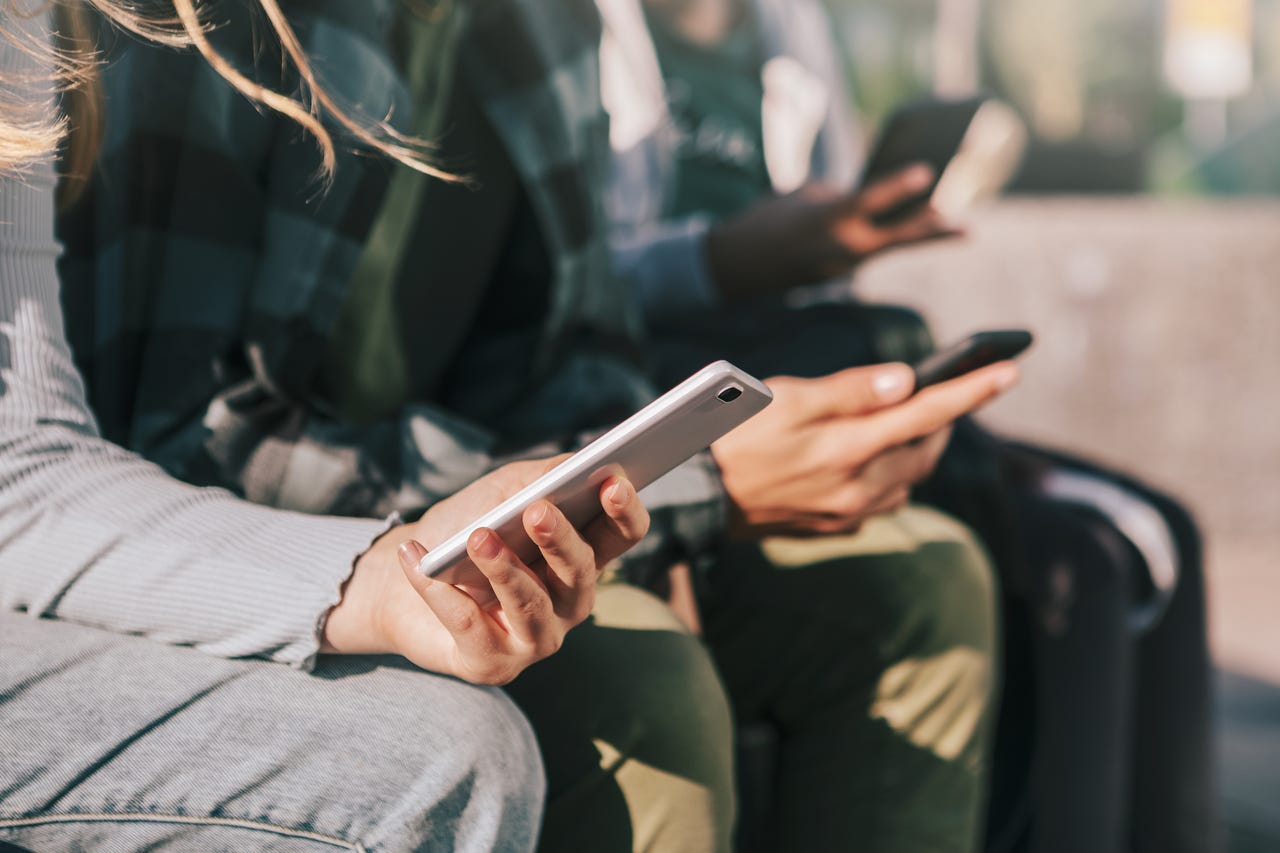































 Getty Images/Kentaroo Tryman
Getty Images/Kentaroo Tryman Attention, all Android phone users: Keeping your phone secure is important.
These days, it's sadly easy for malicious hackers to drain your bank account, steal your data, or pose as you for untold nefarious activities.
Also: The best Android phones right now
Keeping up with your security practices on the front end makes it a lot less likely you'll have to spend time, energy, and maybe even money after you run into trouble. You'll be glad to know that keeping your Android phone secure isn't nearly as challenging as you might think.
Here are some of the best -- and simplest -- ways to avoid such problems.
This first piece of advice is a tough one for many to swallow. However, you should ask yourself if you really need that random, untrusted game found in the Google Play Store. The answer is probably not.
Also: Don't get scammed by fake ChatGPT apps: Here's what to look out for
Why is this so important? Because you never know what kind of malicious code is to be found lurking within an app or an ad framework for an app. In a perfect world, the stock apps found on your device should be enough. When you do want to download a third-party app, make sure it's from a trusted source like a large and reputable company.
That said, do your research before downloading.
Continuing my previous point, stick to safe downloads. Using the Google Play Store makes safe downloads more likely. That's not to say that EVERY app on the platform can be trusted, but most of them have been carefully vetted.
Also: 8 habits of highly secure remote workers
Also, Android has a security feature that will send you a text if the internal security team notices that an app download looks harmful.
Note that a high number of downloads does not mean the app is trustworthy.
Never, ever, ever tap a link in an SMS from a source you do not know!
Any time you receive an SMS from an unknown source, assume it is an attempt to access your data or insert malicious code onto your device. And even if that SMS message seems to come from a reputable source, chances are still good it's a phishing attempt or worse.
Also: 4 ways to secure your remote work setup
On that note, don't reply to those messages -- not even to stop texting you. Either block or ignore the number, but don't engage.
Google releases regular security patches for the Android operating system and it's absolutely crucial that you install them. Those updates don't just contain new and exciting features. They also patch security vulnerabilities to keep you safe.
Also: How to find and remove spyware from your phone
To check for an OS upgrade, go toSettings > System > System update.
But this doesn't just apply to the operating system. You also must regularly check for app updates.
This process can be done from the Google Play Store. Simply,tap your profile image > Manage apps & device > Update all. You may also be able to set your phone to keep apps updated automatically.
The second you connect to an unsecured wireless network, you open yourself up to the possibility of having your packets sniffed or your device compromised.
Also: The best VPNs for Android (and why your phone needs one)
If you find yourself wanting to connect to a network without a secure password, don't. Instead, connect to a data network or a trusted VPN service that can encrypt and randomize the data you send.
Among others, do stay away from an app called SuperVPN Free VPN Client (and free VPNs in general).
Aside from only downloading apps from trusted stores, you can do simple things every day that decrease the chances of outside security breaches. Here's a short list of common practices that help improve your safety: Use a PIN or password pattern to unlock your phone, avoid putting in personal information on websites, back up your data, and make sure to log out of a site after you make a payment.
Android's mobile safety page provides details on the operating system's defense strategy. In a nutshell, yes, Android does take steps to alert consumers of security concerns and has internal security for user protection.
Here are some of the most dangerous apps you should NOT install on your Android device: UC Browser, CLEANit, Dolphin Browser, and SuperVPN Free VPN Client. These are just a few of many harmful apps, so do some research before downloading.
 Hot Tags :
Smartphones
Hot Tags :
Smartphones